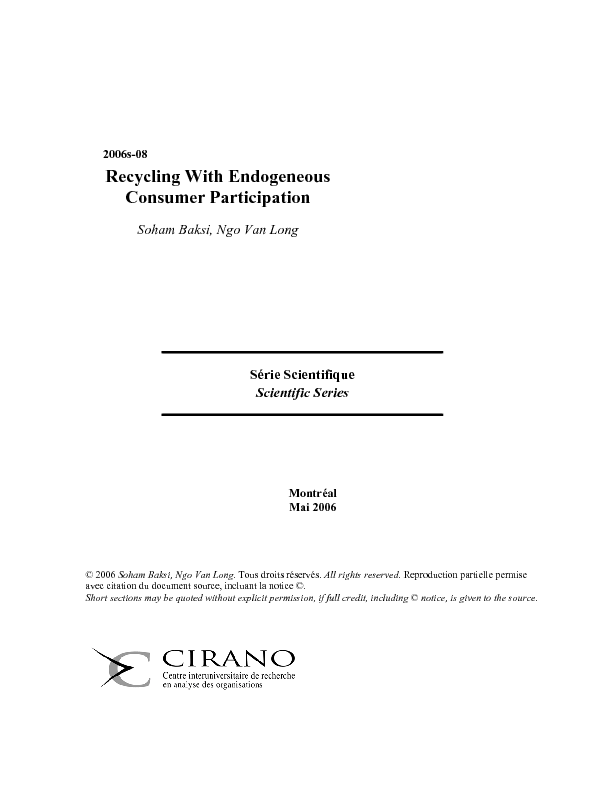Recycling With Endogeneous Consumer Participation
We show that the cost of sorting and the network effects jointly determine the rate of participation of consumers in the process of recycling. The dominant producer of virgin material takes into account the recycling activities when it makes its pricing decision. The network effects can create multiplicity of steady-state equilibria. The government can improve welfare by influencing equilibrium selection.
[ - ]




